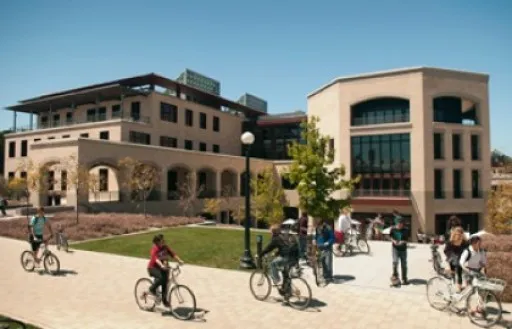Table of Contents
Amidst the noise of entrepreneurial activity at Stanford, one event that has consistently delivered on its goal to find, fund and further the reach of the strongest companies coming out of the Farm is the annual 150K Challenge, run by the Business Association of Stanford Entrepreneurial Students (BASES). This year was no different, with a winning crop of promising startups from a range of industries being awarded a total of $150,000 to get their ventures off the ground.The 150K Challenge is a year-long business competition that culminates in the Finale, a day long series of finalist pitches, product exhibitions and the coveted awarding of seed funding that ranges from anywhere between $5000 to $25,000 per winner. With past winners including companies like Kiva, Courserank and D.Light Design, the 150K Challenge has often been the catalyst for students at Stanford to pursue their ventures full time, often with global commercial success.
The 150K Challenge is an umbrella for the three flagship competitions run by BASES: E-Challenge offers companies with a strong business model a platform to pitch their ventures, while teams working on specific social problems can compete for funding in the Social-E-Challenge. The third track, Product Showcase, is essentially a ‘science fair on steroids,’ giving Stanford students with demo-able prototypes the opportunity to showcase their products to the Silicon Valley community, many of whom are interested investors.
This year’s winners presented a diverse lineup of startups with uniformly strong business models, whittled down to nine companies from a record breaking applicant pool of over 400 teams.
Calcula Technologies, a medical startup, took the first place in E-Challenge with its innovative treatment of kidney stones that are painful yet too small for removal by surgical operation, while Ravel, a legal search platform, came in second for their portal that helps lawyers and law students analyse changes to legal cases.
In third place was Wello, an online platform that connects fitness professionals with new and existing clients over video for live training sessions and group workouts.
The Social-E track saw an eclectic mix of winning ventures, with the Dhaka Water Initiative coming in first for their water chlorination solutions targeted at urban slums, and second place going to Carbon Lighthouse, a startup that develops energy reduction services for industrial and commercial clients. Innovostics, a healthcare company, came in third for their microfluidic product that aims to improve medical diagnostics in poor countries through low cost point-of-care testing.
Product showcase, the only segment open to the public, proved to be immensely popular with the 350 over attendees who turned out to see the exhibition of products by the 25 teams selected. The first place went to StealthHD, a software platform that creates 360 degree panoramic videos with potential applications in entertainment, security and defence. Veebot, a company that automates the process of venipuncture took second place, while the third was awarded to SIPX, a Stanford Law School startup that offers copyrights holders a way to license their intellectual property to consumers at lower costs and more conveniently than current options.
All three winners were also members of the BASES Forge program, a year-long campus incubator that offers student run companies the funding, legal services mentoring and office space required to build working prototypes of their products.
The event drew some of the biggest venture capital names in Silicon Valley, with sponsors including Sequoia Capital, NEA Partners and law firm Perkins Coie, and with the keynote delivered by Alfred Lin, former Zappos COO and current Sequoia partner.
Lin, a Stanford graduate, spoke to the audience about his ‘ten principles of leadership’ that revolved around the need for aspiring entrepreneurs to embrace accidents as opportunities. “Zappos was born out of the accidental frustration of shopping for shoes,” said Lin about the startup that he famously steered to a smooth $1 billion acquisition by e-commerce giant Amazon.
Behind the scenes, the show was compared by BASES Presidents Mary McCann and Charles Naut who have, over the past year, overseen the introduction of various programs under BASES that offer aspiring entrepreneurs on campus a real shot at building sustainable businesses. Run completely by students, BASES also hosts the E- Bootcamp, the world’s largest student entrepreneurship conference that hosts the 100 best student business plan teams from around the globe, and that took place earlier this quarter.
With organizations like BASES ensuring that students with the talent, ideas and drive to pursue their ventures have access to the resources they need to enable their entrepreneurial ambitions, the university seems well on its way to living up to Leland Stanford’s founding hope of preparing* “students for personal success, and direct usefulness in life.”*





